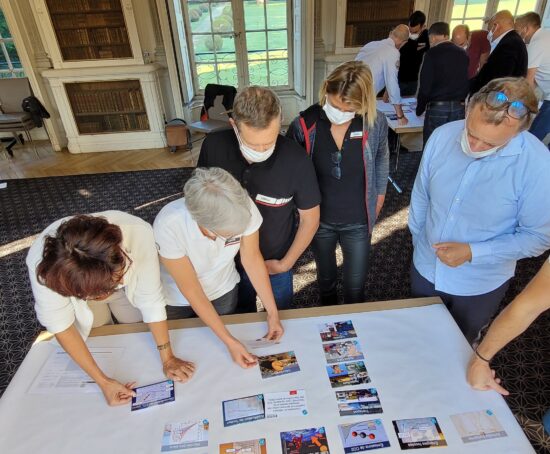
La Fresque du Climat workshop
You want to understand the causes and consequences of climate change.
Accueil » Trainings » Ecological Transition training » Implementing Value Management approaches

Raising the awareness of company directors and managers so that they can promote Value Management (VM) approaches and understand how they complement other approaches such as project management, the circular economy and agility. Understand its specific features in relation to other progress approaches such as Lean Management, or economically-oriented approaches such as cost-killing.
At the end of the course, trainees :
Executives, managers, key members of the company involved in the company’s ecological transition project or any other project.
None
3.5h (1/2 day)
Face-to-face on company premises or OF premises or distance learning
Inter-company (1 or more people per company) or intra-company
Inter / Presential : 253€ NET tax / participant
Inter / Distanciel : 125€ NET tax / participant
Intra / Presential : 1400€ NET tax / group
Intra / Distanciel : 1000€ NET tax / group
Teaching method : Participatory conference format led by the trainer
Technical resources:
Minimum 6 people for inter
Maximum 14 people
Expert in value-based management, trained in the facilitation and management of collective intelligence, specialist in business transformation support.
Pre-course needs questionnaire and learning assessment quiz to better understand the audience’s level and expectations.
Follow-up and support for participants during case studies, exercises, role-playing and in-session tests.
Assessment of knowledge through a Quiz at the end of the course.
Post-training satisfaction and evaluation questionnaire.
Certificate of completion

You want to understand the causes and consequences of climate change.

You want to master the 8D method to solve problems collectively and control the risk of problems reappearing.

You want to apply a simple, effective methodology to collectively solve problems in your working environment.